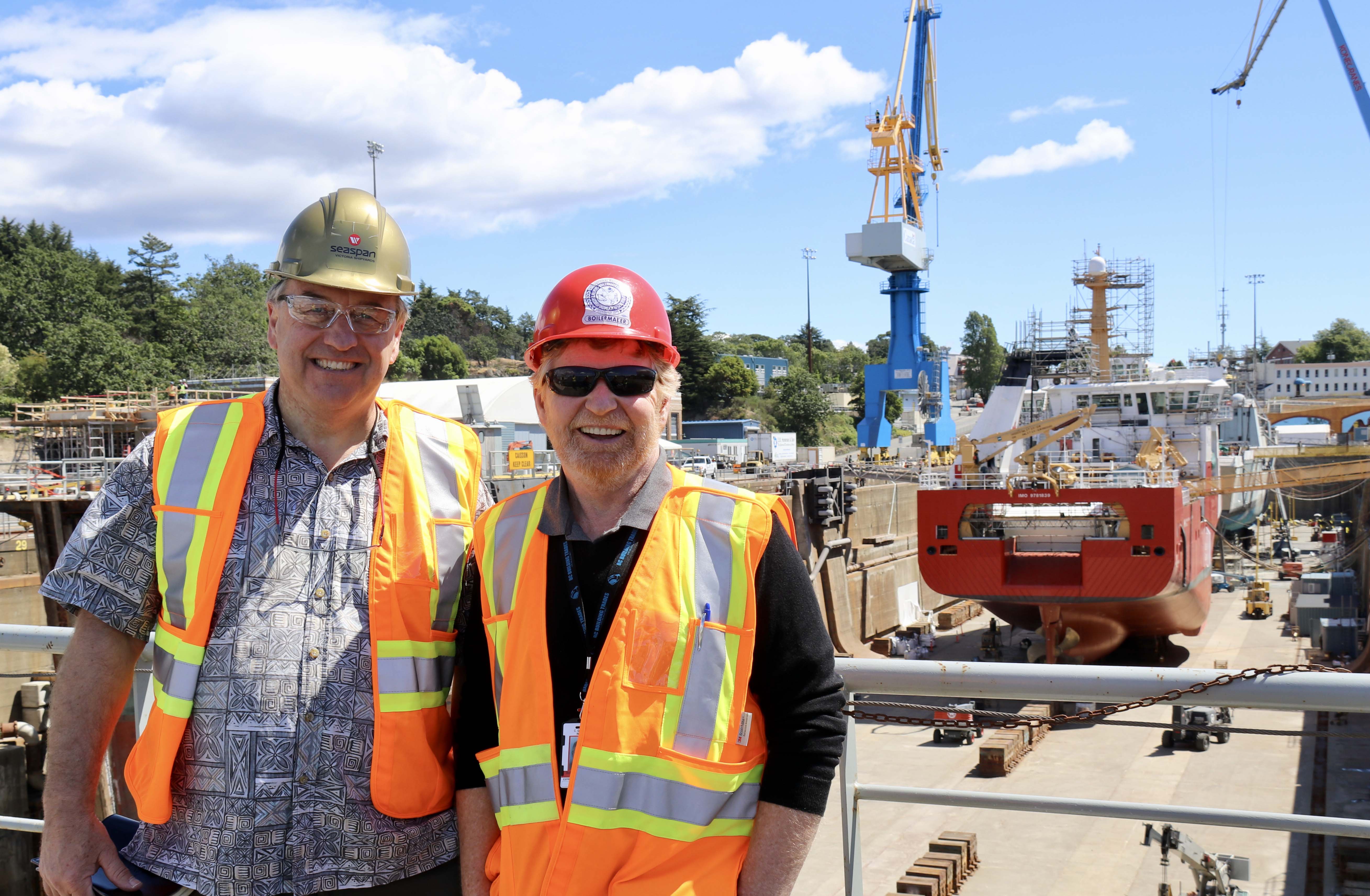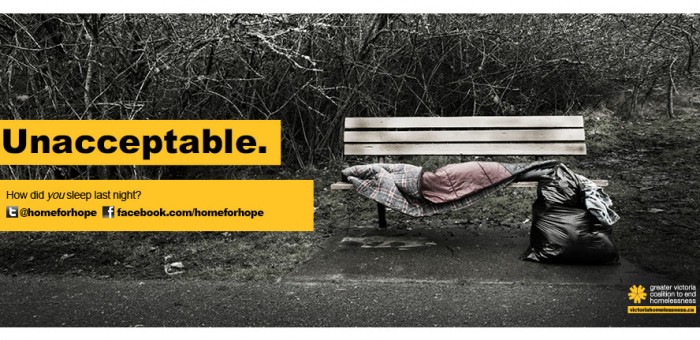Community Blog
Tribute to Dr. David Chuen-Yan Lai
On June 15, 2018 my UVic colleague Dr. David Chuen-Yan Lai passed away. A memorial gathering was held to celebrate his life on from 2 to 4pm on August 5th at the Chinese Cultural Centre on Pender Street in Vancouver. I had planned to offer a brief tribute to Dr. Lai but I was also participating in the Vancouver Pride Parade. Unfortunately, our position in the parade was such that it was impossible for me to make it there on time.
Below is the brief tribute I had hoped to deliver in celebration of Dr. Lai’s life.
Tribute
It is a great honor and privilege to be gathered here today with all of you to celebrate and remember Dr. David Chuen-Yan Lai.
Dr. Chuen-Yan Lai was an extraordinarily influential member of my community. He’s widely credited as leading the renewal of Canada’s oldest Chinatown in Victoria. His humble, yet articulate and insightful approach to scholarship was an inspiration to his students.
I knew Dr. Lai well as a colleague of his at the University of Victoria. His remarkable legacy of preserving the history and culture of Chinese Canadians was recognized through him being awarded the Order of Canada, the Gabrielle Léger Award of the Heritage Canada Foundation, the Heritage Award of the B.C. government and a Victoria Leadership Award.
From his fight to preserve Victoria’s Chinatown, to influencing countless lives through his days as a professor at the University of Victoria, Dr. Chuen-Yan Lai leaves behind him a legacy to follow, admire and never forget.
Thank you David for all that you did for UVic, The City of Victoria, The Chinese Community in British Columbia and all Canadians.
Your achievements and accomplishments will never be forgotten and we are grateful for your unselfish service for the betterment of our society.
Community benefits agreements & the proposed BC Infrastructure Benefits Inc.
Earlier this week the BC government announced 2 public infrastructure projects that will be delivered under “Community Benefit Agreements” (CBAs), and the creation of a new Crown corporation, BC Infrastructure Benefits Inc., (BCIB) that will oversee the implementation of these agreements.
In response to media requests on this announcement we issued the following statement :
“Community benefit agreements are a great way to invest in our province’s future and a key tool that government can use to advance social and environmental goals. In particular, investing in training and apprenticeships for young people, First Nations and women will help set those British Columbians up for long-term success, which will have significant knock-on benefits for our province and its communities.
I look forward to seeing the details of the government’s overall framework. I will be looking to ensure that it is fair and effective from a policy perspective, rather than a political or ideological one. While our caucus’ approach to labour policy differs in some respects from the BC NDP’s, I believe there are significant opportunities for us to collaborate to modernize BC’s laws so that we can best set British Columbians up for success amidst major global economic shifts.
I look forward to seeing the details of this agreement and working with Minister Bains to meet our CASA commitment to find innovative ways to improve fairness for workers.“
In response to a number of questions, I wanted to expand on this statement.
Without a doubt, CBAs can be a good policy tool to accomplish important objectives for public construction projects, such as increased apprenticeships, increased participation for indigenous trades workers, women and other underrepresented groups, commitment to local hiring, and more certainty on wages on project timelines.
A strong building trades labour force is critical for our province’s future. To meet our climate targets and build a stronger, sustainable economy, we are going to need to make significant investments into our existing building stock, as well as building new infrastructure including public transportation. We also need to ensure our workforce develops, in particular by ensuring that there are enough apprenticeship opportunities to train new workers.
However, CBAs must be advanced as a policy tool to address the values I outlined above – not as a tool to pay back political favours or to advance ideology at the expense of good policy. We have made this perspective clear to the government, and will be applying this approach to reviewing how the government awards Community Benefit Agreements in the future.
We have also asked government to provide reasoning for why the two projects announced earlier this week had a unionization requirement for workers on these two sites.
It is our view that CBA should be applicable for both union and non-union trade shops and that we are focused on ensuring that whoever is competing for a contract is meeting the requirements laid out in the CBA. To be clear – CBAs can be good policy, providing a good tool for government to help drive the development of a strong building trades labour force, as long as we use them for policy not partisan reasons.
On the good work that comes from collaboration in the BC Legislature
Today during Members’ statements I rose to speak about the good work that can be done in the legislature when MLAs work together. I offer a special tribute to Shirley Bond who I have very much enjoyed working with on many files over the last few years.
Below I reproduce the video and text of my statement along with the accompanying news release.
Video of Statement
Text of Statement
As we reach the end of the session, I’d like to take a moment to reflect upon this past spring and the work that we’ve collectively accomplished. This session has offered a unique opportunity for members from each political party to come together around shared values to work tirelessly for the betterment of all British Columbians across our vibrant and diverse province.
Collaboration and communication are always key. Collaboration isn’t just limited to one side of this chamber; it involves all members from all parties. I’d like to take a moment to acknowledge the work of each and every member in this chamber and to highlight just a few of the many examples where government of any stripe has improved the lives of British Columbians.
In Saanich, immersion students are reconnecting with their language and culture through a commitment to increased investment in Indigenous language programs. We’re already witnessing positive impacts on the ground.
The MLA from Saanich North and the Islands and the MLA from North Vancouver–Lonsdale both rose during members’ statements to share their testimonies as to the importance of language and preserving culture.
The MLA for Cowichan Valley noted the example of a single mother fleeing domestic violence who was able, with the support of the provincial domestic violence plan, to find shelter, stable housing and post-secondary enrolment.
A few weeks ago the MLA for Peace River South discussed ministry work on seismic upgrades while he was Minister of Education. He expressed enthusiasm for continued funding to support the upgrading of additional schools.
When floods swept the Interior earlier this month, all parties came together to tour and support the affected areas.
I’d like to offer my own personal thanks to the member for Prince George–Valemount — whether it be regulations to ban employers from requiring employees to wear high heels, working to bring an engineering program to the University of Northern British Columbia or the world-class glacier destination ski resort to Valemount, advocating for realtors struggling with imminent yet still-changing rules governing their profession or the Borealis geothermal energy project near Valemount — you have been gracious and generous in your willingness to work together.
This is the message that I’d like to share today. We do our best when we collaborate with one another and other British Columbians, when we are creative, innovative and forward-looking. Despite our differences, this session has provided numerous examples of how we can better the lives of British Columbians when we are working together.
I’m encouraged by our session and look forward to further collaboration. Thank you to each and every MLA in this chamber for your dedication to your communities — and to the member for Prince George–Valemount, we still need to get that physiotherapy program at the University of British Columbia.
Media Release
Spring session shows value of collaboration: Weaver
For immediate release
May 31, 2018
VICTORIA, B.C. – Andrew Weaver, leader of the B.C. Green Party caucus, says the Spring session of the B.C. Legislature shows the value of working collaboratively across party lines.
“We do our best when we collaborate with one another and other British Columbians, when we are creative, innovative and forward-looking,” said Weaver in a morning statement to all members of the house.
“Despite our differences, this session has provided numerous examples of how we can better the lives of British Columbians when we are working together. I am proud of the many instances of collaboration this session. The B.C. Green caucus will continue to advance evidence-based good public policy regardless of its origin, and to push for legislative reforms and modernized parliamentary practices so that British Columbians can see more of this kind of work from their elected officials.”
Weaver highlighted previous statements made in the House by MLAs from all three parties on the importance of Indigenous language immersion, the provincial domestic violence plan and continued funding to support seismic upgrades in schools. Weaver extended a special appreciation to the member for Prince George-Valemount for her efforts to work collaboratively to ban employers from requiring employees to wear high heels, an initiative he brought forth under the previous B.C. Liberal government. Weaver said these examples demonstrate how governments of all stripes have worked across the party lines to improve the lives of British Columbians.
The Spring legislative session has seen a number of unique instances of collaboration, including:
- The release of an all-party committee report on ride-hailing, which included a number of recommendations for a legislative and regulatory framework that had all-party consensus. The report is a result of the topic of Weaver’s Private Member’s Bill on ride-hailing being referred to committee, which held a number of public hearings on the issue in order to develop the report. Weaver is optimistic the report will advance B.C. finally passing ride-hailing enabling legislation.
- Weaver’s Corporations Amendment Act, 2018 passing second reading. Weaver’s Bill is the first instance of an opposition Member’s Private Member’s Bill passing Second Reading in the history of the B.C. Legislature. This was made possible by the government making legislative drafters available to opposition parties for the first time in B.C.
- An emergency debate on proportional representation, after Third Party House Leader Sonia Furstenau agreed to the debate proposed by Official Opposition House Leader Mary Polak.
-30-
Media contact
Jillian Oliver, Press Secretary
+1 778-650-0597 | jillian.oliver@leg.bc.ca
When will government increase the $375 shelter allowance for income assistance?
Today in the Legislature I rose during question period to ask the Minister of Social Development and Poverty Reduction why the government had yet to increase the $375 shelter allowance for income assistance. This rate hasn’t increased in a decade yet housing costs have risen dramatically.
Below I reproduce the video and text of our exchange.
Video of Exchange
Question
A. Weaver: In September, government raised social assistance rates by $100 per month. Not only, of course, do I support the move, but I also commend government for implementing this increase. Rates had been frozen for a decade, leaving people worse off year after year, as their buying power eroded with inflation and the affordability crisis exploded.
Nevertheless, while support payments have gone up, the shelter allowances have remained the same, at only $375 a month. This is far, far below what it actually costs to find shelter.
For example, the organization Raise the Rates found that in Vancouver, even a single-room-occupancy hotel, known as an SRO — the cheapest form of housing available — cost $548 a month. And a number of advocates and journalists have documented the appalling and unsafe living conditions that people are forced to endure in many SROs in Vancouver.
My question to the Minister of Social Development and Poverty Reduction is this: do you agree that $375 does not come close to reflecting the true cost of finding shelter in B.C., let alone shelter that is safe and secure?
Answer
Hon. S. Simpson: I thank the Leader of the Third Party, though I did lose the bet on getting a question-free session.
I agree with the Leader of the Third Party. Persons on income assistance, persons with disabilities and hundreds of thousands of other people who are living vulnerable and living poor are struggling immensely in this province today. I’m proud of the $100 increase that we put in place, the first increase in over a decade for people on income assistance.
As I said, there are significant numbers of working poor in this province who are struggling as well, and I’m excited that at the end of this week, we’re going to have a $1.30 increase in the minimum wage, the first step on the way to a $15.20 minimum wage.
On the issue of housing, the member is correct: it is challenging, as we move forward, but we have many steps that we’re taking. I’m excited about the biggest investment in housing in the history of British Columbia in the February budget. I’m excited about the increases around rental assistance programs and SAFER grants. I’m really excited about the 2,000 modular units that are out there being built today, that are being occupied today, that are helping the most vulnerable people in the province, people living homeless, and giving them a place to live. That’s progress, and that’s leadership.
The last thing I would say is: we’ll bring in the poverty reduction plan, and yes, we’re going to deal with housing.
Supplementary Question
A. Weaver: There certainly was a lot of pent-up answer waiting for a question there.
A substantial gap remains between social assistance rates and what is required to maintain a dignified standard of living. That’s why during the election the B.C. Greens committed to transitioning people to livable incomes, starting with an increase in social assistance rates by 50 percent above 2017 levels by 2020.
The previous critic on this file said last year: “Every year I ask the minister how on earth they come up with $375 as the shelter allowance for income assistance, because there’s nowhere in B.C. that’s available for $375.” I would agree with her, but unfortunately, this remains true today, and the average rent of a bachelor apartment in Vancouver is over $1,000 a month.
My question, again, to the Minister of Social Development and Poverty Reduction is this: will you increase the shelter allowance as part of the forthcoming poverty reduction program and strategy?
Answer
Hon. S. Simpson: We have 557,000 people living in poverty in this province. We’ve had the highest rates of poverty for over a decade and a half, pretty much every year, and certainly the highest rates around child poverty.
We have challenges. We need to deal with the affordability questions that the member’s talking about. We need to create opportunities for people to break the cycle of poverty. We need to deal with the issues of social isolation and social inclusion for people struggling in poverty, whether they be the 100,000 children living in poverty, the Indigenous and the disabled who are living in poverty.
We’re going to do that. We’re going to bring legislation this fall that will legislate the poverty reduction plan, and British Columbia will no longer be the only province in this country without a poverty plan. We will end that this fall. We will bring the plan shortly after, and we will address those issues of improving the lives of people in this province, including on the housing issue.
It’s time to take immediate action to stymie speculation on farmland
Following the recent decision of Richmond Council to continue the status quo and allow mega mansions on ALR is their municipality, the BC Green caucus released a media release (reproduced below) calling on government to protect our rapidly depleting farmland.
Media Release
B.C. Green Caucus calls on province to take immediate action to stymie speculation on farmland
For immediate release
May 15, 2018
VICTORIA, B.C. – The B.C. Green Party caucus is calling on the provincial government to take immediate action to stymie speculation on ALR land. The Caucus says the vote at Richmond council last night demonstrates why provincial action is needed.
“Mega mansions on ALR land are imperiling our food security, destroying agricultural land and driving up prices well beyond the reach of young farmers,” said Andrew Weaver, leader of the B.C. Green Party.
“The provincial government has a number of tools at its disposal that it should immediately use to address the issue of speculation on ALR land. These include restricting foreign ownership of ALR land, applying the speculation tax and foreign buyers tax to the ALR or creating legally binding house size limits. It should use at least one of these immediately to prevent the loss of any more farmland.”
Adam Olsen, MLA for Saanich North and the Islands and a former Saanich Councillor, added that local governments have been asking the province to take action for years.
“This decision at Richmond Council will drive the price of ALR in their community sky high, it will impact the rest of the province and demonstrates the need for action at the provincial level. When I was a Central Saanich Councillor, we knew 10 years ago we needed to take action on limiting house size and location on ALR land, we called on the government of the day to act. We were not alone and rather than take action the Province has buried this issue in consultation only further increasing pressure on the cost of farmland. The issue of speculation driving up land prices is well-documented and its solutions are clear. Delaying action only causes the issue to spiral further out of control: Last year, Richmond alone lost 50 farms due to the construction of mega-mansions on farmland. I urge the Minister in the strongest terms to recognize to take immediate action before any more farmland is lost.”
-30-
Media contact
Jillian Oliver, Press Secretary
+1 778-650-0597 | jillian.oliver@leg.bc.ca








